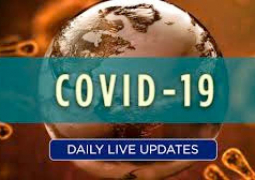
Chief
Observer Miroslav Poche, a member of the European Parliament (MEP), bade
farewell to 14 short-term observers (STOs) who departed yesterday from the
European Union Election Observation Mission’s (EU EOM) headquarters in Banjul
to respective areas of observation across the country.
Prior
to their deployment, the EU EOM’s STOs received comprehensive briefings on a
wide range of issues, including the electoral process, political environment
and media landscape.
The
ceremony was held at Ocean Bay Resort Cape Point, Bakau.
“This
team of short-term observers brings a wealth of diverse experience and reflects
the interest of the European Union in the upcoming National Assembly
elections,” said the Chief Observer, Mr Miroslav Poche.
Furthermore,
the Chief Observer stressed: “The EU strongly stands by the understanding that
election observation is not a one-day event and that an informed assessment of
an election cannot be made if observation is limited to election-day
monitoring. Therefore, the EU has
deployed its observation mission three weeks prior to Election Day and will
remain in The Gambia to observe the post-election environment, including the
adjudication of complaints, if any.”
On
March, 14 long-term observers in multinational teams of two have been deployed
to all of the seven regions and the mission’s scope of observation will be
broadened as 14 STOs and a dozen of locally-recruited short-term observers from
EU member states’ embassies accredited to The Gambia have joined the mission.
STOs will primarily observe the proceeding on Election Day as well as the
tabulation of the results.
On
April, a ten-member delegation of the European Parliament (EP) will also be
integrated into the mission. The EP delegation is headed by Ms Jean Lambert,
the MEP from the United Kingdom. Around Election Day the EU EOM in The Gambia
will comprise up to 50 observers drawn from 27 EU member states, as well as
Norway and Switzerland.
The
mission operates in accordance with the “Declaration of Principles for
International Election Observation,” adopted under the auspices of the United
Nations in 2005.
In
addition, observers are bound by a code of conduct that assures strict
neutrality and impartiality course of their duties.



